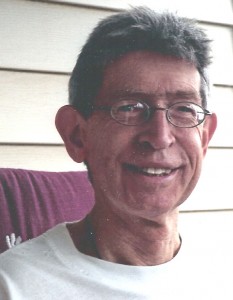Speaker Available
Israel/Palestine: a view from inside the West Bank

What’s it like to live and work in the West Bank…in the ancient city of Hebron or in a shepherd village in the south Hebron hills? How does the Israeli-Palestinian conflict affect the everyday life of families there? How do members of Christian Peacemaker Teams work to reduce the violence inherent under occupation? What are Israeli human rights groups doing in the struggle for peace with justice in this land that means so much to both peoples?
Are you interested in an inside perspective, one you’re not likely to hear on the evening news or read in your daily paper? Paul Rehm recently returned from his third period of service with Christian Peacemaker Teams in Israel/Palestine and would be glad to share with you the experiences that shaped his days and nights under apartheid. Contact Paul at 518-966-5366 or kprehm@aol.com to schedule a presentation/discussion with your organization or congregation.
The following are excerpts from email letters Paul sent from Hebron.
Last week, Art, Mary and I visited a women’s needlepoint cooperative in Udna. They work at home and sell their needlepoint in Udna and at the only woman managed shop in the old city. There was laughter mixed in the very positive response to Art’s question, “Does this work give you more power at home?”
Our next stop was a new greenhouse where another women’s coop will be growing cucumbers to sell in the local markets. Fifteen minutes later, we were staring at the wall and talking with the family through whose land it had been built, depriving them of access to much of their property. Such a cruel, ugly structure.
Children Threatened
Then there are things like the phone call we received from a family asking us to come at once to their home. A settler with a gun had threatened their children while they were outside playing. He then returned and threw a stone through the living room window. We spent some time with the family and remained with the distraught mother while her husband went to file a complaint.
Some people back in the US are aware of Settler Only roads — roads that most Palestinians are not allowed to drive on. This past Shabat, as John and I were sitting by the side of the road greeting (and hoping for conversations with) settlers on their way to and from worship, I was saddened to see this concept carried to a new low. Soldiers were forcing Palestinian women and children off the road on which settlers were walking freely. The Palestinians were required to walk on a narrow, rocky path behind a barrier that runs beside the road.
Nonviolent demonstrations
We’ve been supporting the Palestinian Popular Committees at their weekly nonviolent demonstrations calling for the removal of the Duboya Street checkpoint. The Imam leading prayers and the people praying peacefully on the street leading to the checkpoint was a most impressive sight.
Sadly, as was to be expected, the soldiers then refused to let children or adults through the checkpoint. Looking up, I could see soldiers were also on the roof watching with tear gas canisters at the ready. Along with praying that the checkpoint will be removed, I also pray that the demonstrations will remain peaceful.
Keep smiling and please continue to pray for the Palestinians and Israelis, that they may soon live together in peace.
Salaam/Shalom
Paul
Israeli Peace Groups
Last weekend, we joined shepherds from the small village of Bwaeb as they attempted to graze their sheep on their hill sides about a kilometer from a nearby settlement. Rabbi Ascherman from Rabbis for Human Rights and several folks from Tayush, an Israeli peace group, joined us in those stony fields. As we arrived, a handful of settlers with dogs appeared and began to harass the shepherds and to drive the flocks of sheep down the hills. While several of us were side-stepping up and down the slopes trying to stay between.
In Susya, the next day, we accompanied Palestinian landowners as they walked on their land for the first time in six years. Armed with the deeds and relevant documents attesting to their ownership, we made our way up and down the hills arriving by the demolished home of one of the men. Soldiers watching from the top of the hill came down and — after reviewing the documents — offered to escort five of the men on a further circuit of their land. ‘Twas a pleasant surprise.
Waiting for the men to return, we looked down the valley toward the nearby settlement and saw settlers gathering. In no time, a hundred or more were on their way up the hill. Although they soon had us and the remaining half dozen soldiers surrounded, they refrained from any physical acts of violence. They “got in the face of” the Palestinians, interrupted conversations, made fun of some of the old men (even of those who were praying) and generally tried to provoke a violent response of some kind. All to no avail.
The village leader’s words earlier in the day were heeded. The soldiers’ commander helped mediate and the day ended peacefully. The settlers were glad we all left. The Palestinians were glad they had been able to walk on their land.
Please keep us in your prayers.
Salaam/Shalom,
Paul
